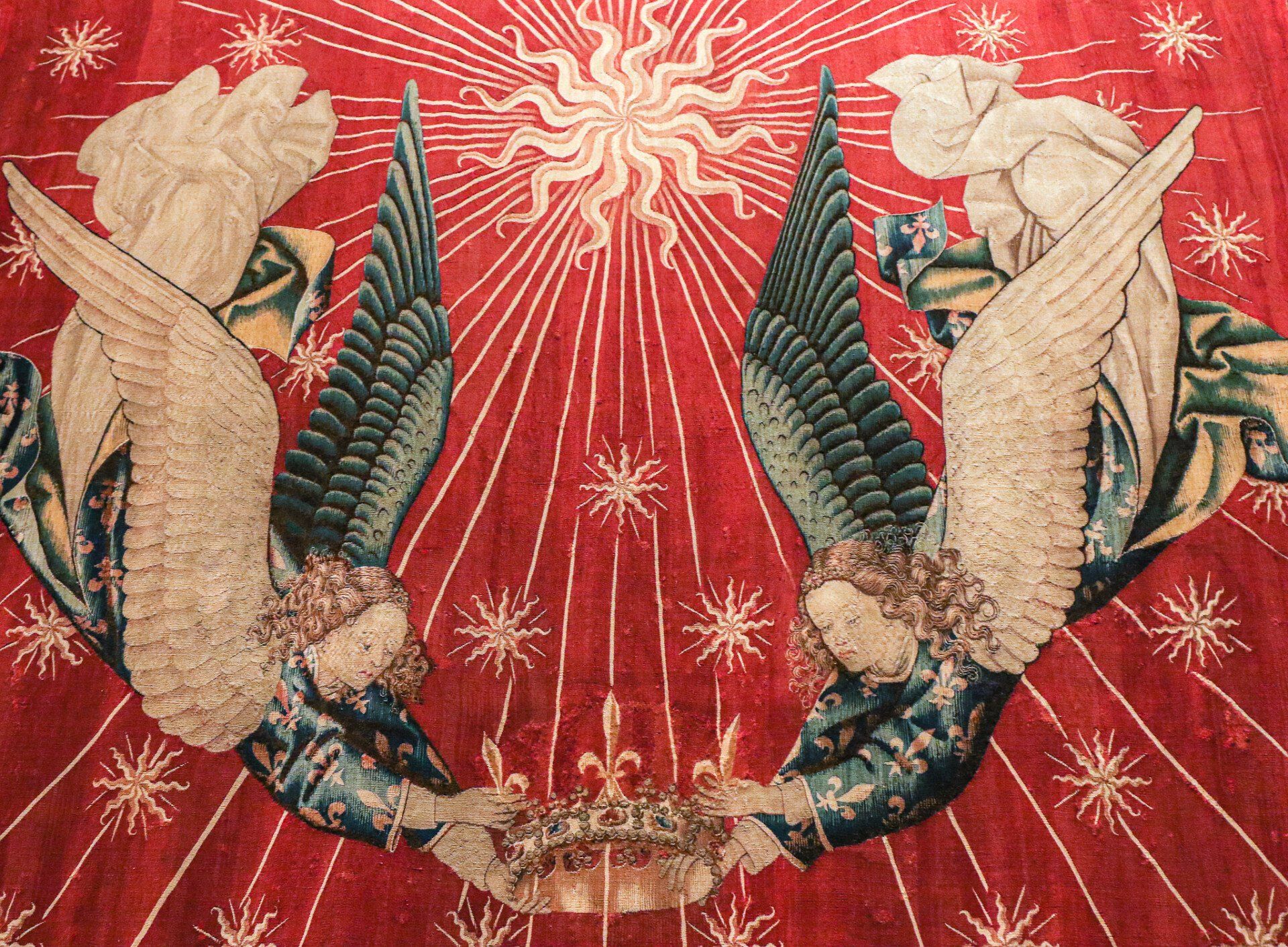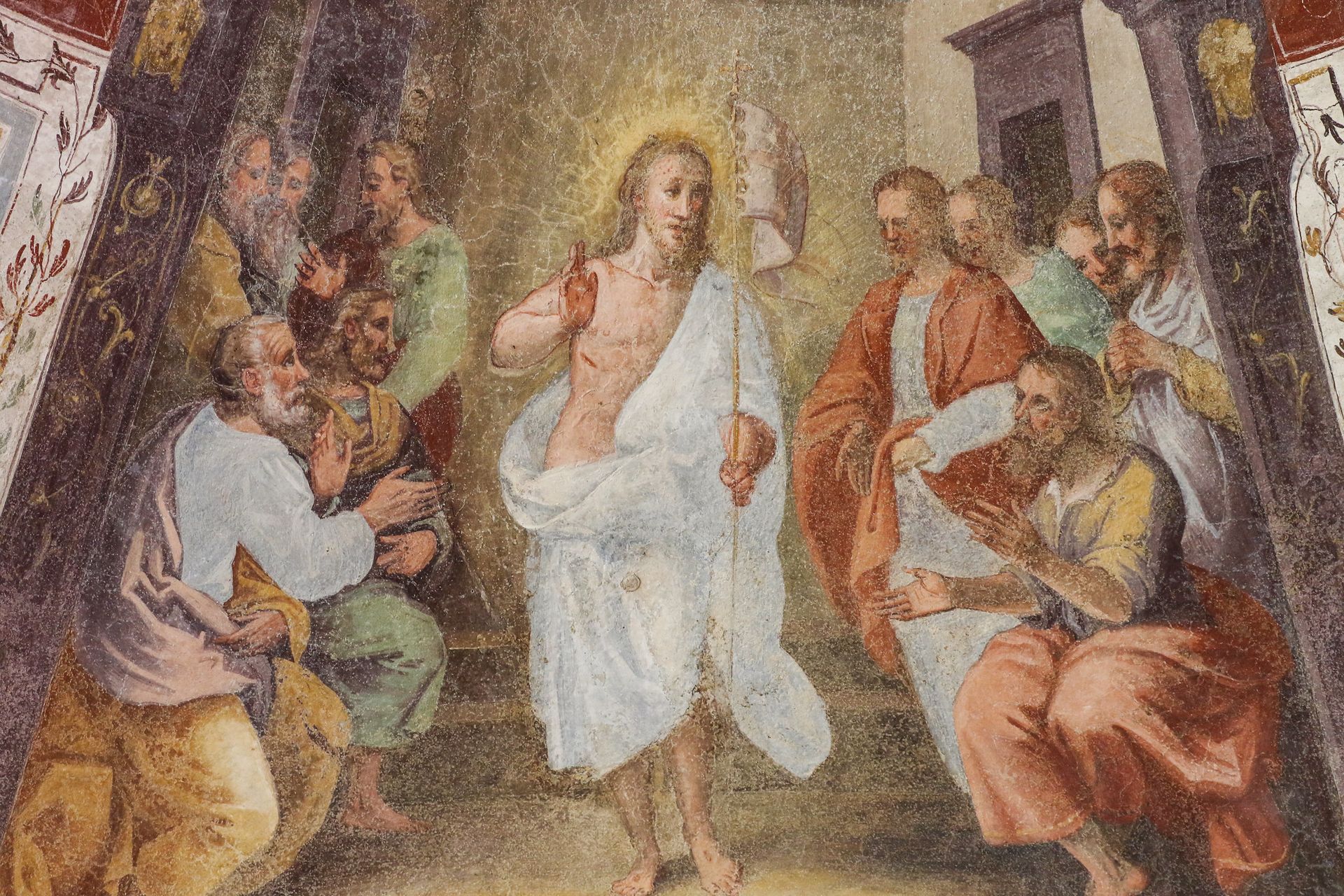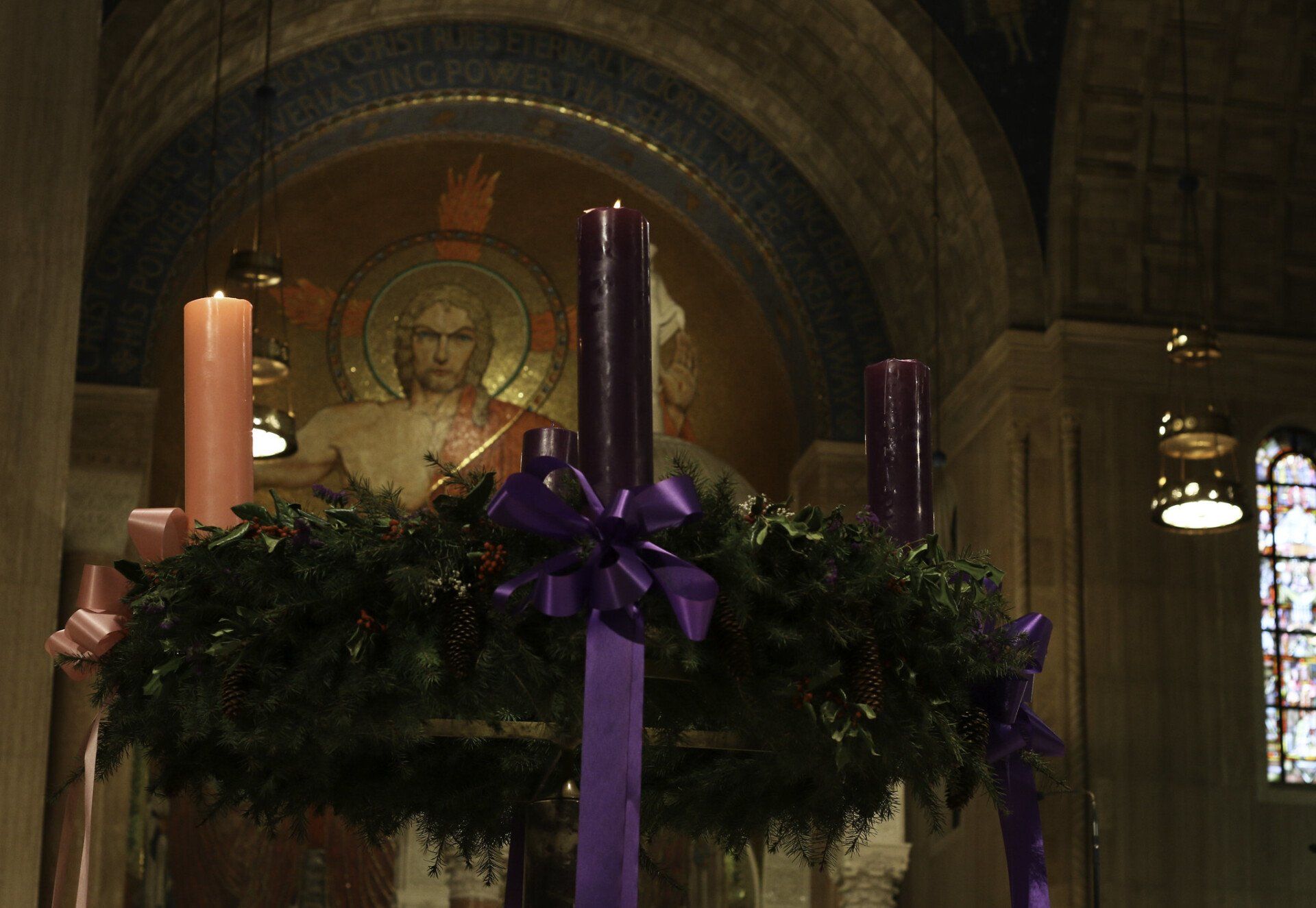Advent Series: Judgment
The Second part in an Advent series on the “Four Last Things”
The story is told of St. Boniface, the English monk who became a missionary to Europe, that he struggled to convert the Germanic tribesmen from their worship of the old gods to the worship of the one true Lord Jesus Christ. One day around the winter solstice he and his band of monks came upon an ancient oak tree, dedicated to the god Thor. A crowd was gathered to observe a human sacrifice. The priest of Thor raised a heavy wooden mallet above a bound victim. Suddenly Boniface stepped forward, interrupting the ceremony. “The Cross of Christ shall break the hammer of the false god Thor, he said, and, taking an ax, began to strike the massive tree. The bemused Germans watched this monk trying to chop down this huge tree with an ax, but, as the story comes down to us, he had cut no more than a notch in it when the whole tree trembled, swayed, and crashed to the ground, breaking into four parts.
As the crowd stood stunned, their sacred shrine destroyed, Boniface spied a small evergreen sapling growing up among the roots of Thor’s oak. Boniface seized on it as a timely sermon illustration. Look, he said to the stunned crowd, “This little tree, a young child of the forest, shall be your holy tree tonight. It is the wood of peace . . . It is the sign of an endless life, for its leaves are ever green. See how it points upward to heaven. Let this be called the tree of the Christ-child; gather about it, not in the wild wood, but in your own homes; there it will shelter no deeds of blood, but loving gifts and rites of kindness.” The wood of the oak tree was used to build a church in that place.
So if anyone try to tell you the Christmas tree is a pagan symbol, you remember about St. Boniface and his ax!
This story reflects two important themes for us to meditate on in this season of Advent; first of all the judgment of God, expressed in the overthrow of false religions, their idols and evil practices; second the profound mercy of God expressed even in the midst of that judgment, calling all people and redeeming them for himself; giving them a kinder and better hope than their idols could possibly provide.
Scripture is full of such examples, and indeed our Scripture lessons today are also full of axes and stumps—the icons of judgment—as well as the hope of redemption and new growth through the Messiah, Jesus Christ.
In the verses immediately preceding this morning’s lesson from Isaiah, the prophet portrays the judgment of God as of a woodcutter with his ax:
Behold, the Lord, the Lord of hosts
will lop the boughs with terrifying power;
the great in height will be hewn down,
and the lofty will be brought low.
He will cut down the thickets of the forest with an axe,
and Lebanon with its majestic trees will fall.
This is, figuratively, a campaign of deforestation; not selective removal and woodlot management, but clear-cutting, complete devastation.
When I was in seminary, I did a paper on the book of Second Chronicles in the Old Testament. The book concludes with a census of those who returned to Jerusalem from the Babylonian captivity. Notably absent from this census is any mention of Israel’s royal family, the house of David. The tree of Jesse appears to have been felled and Israel is now subject to foreign rule.
But in Isaiah, written well in advance of these historical events, God promises renewal. In the fallen ruins of once-proud empires a young tree, a shoot, emerges from the stump of Jesse, the royal family of Israel. Chosen by God, this branch will put not only Israel but the whole world to rights.
Two of the gospels—Matthew and Luke—offer genealogies of Jesus, showing that he is indeed descended, albeit obscurely, from the royal family of David. Isaiah’s prophecy is fulfilled.
Jesus’s cousin John the Baptist warned the people of this impending visitation of God.
A colleague pointed out to me that this passage is a kind of re-founding, a re-consecration of Israel. Israel has gotten so far from where they started that they need a reset. And so it’s no accident that John is preaching and baptizing at the Jordan river. He is calling the people of Israel to return to the place where Joshua first crossed the Jordan. They must re-enter God’s kingdom, as if for the first time, by passing through these waters.
But there are two kinds of people who are coming out to hear John the Baptist. First, it says that “all Jerusalem and Judea” was going out to hear his preaching and be baptized in the Jordan, repenting of their sins. It was a significant movement.
But another group of people also come out, the Pharisees and Saducees. The Pharisees were the teachers of the Law, while the Saducees were the Temple party. In terms of today’s religious groups these would be the Presbyterians and Episcopalians, respectively. But John the Baptist is not enthused that these upstanding men of religion have come out to listen to him and get baptized. Instead of congratulating them for seeing the light, he unloads both barrels of a blistering warning of judgment.
You nest of venomous snakes! Who warned you to flee from the coming wrath? And then he comes to the point: “Do not think to say to yourselves, ‘We have Abraham as our father’.”
Being children of Abraham is not enough. Judgment is coming. “The ax is laid to the root of the tree” just like in Isaiah. “Any tree that does not bear good fruit will be cut down and cast into the fire.” These parties in religion think that a right relationship with God is mediated through either the law or the practice of the temple religion. They’re not gonna make it. The law, and the Temple, are God’s gracious gifts. But they are about to pass away. One greater than Moses is here. By refusing to recognize the Messiah when he comes, and placing their hope in their own observances, the Pharisees and Saducees are no better off than those pagans practicing evil rites around the oak of Thor.
John’s critique is harsh and his warning ought to make the hair stand on end. God’s judgment may seem threatening. But it’s more than that.
A cliched line of television dialogue has something to teach us here. Two characters are in the heat of an argument. Is that a threat? one man asks. No, the other responds, it’s a promise. In other words, he’s gonna back his words with action.
God’s judgment isn’t just a threat he holds over the world to make us behave ourselves. It’s his promise to make things right at last, in a way that we never could.
Later Jesus himself appears to be baptized. Jesus himself has no sin to repent of. He is not under judgment—he is the judge. The cross tells us that Jesus was judged for us. His righteousness makes us righteous; his justice justifies us.
Jesus fulfilled in himself, vicariously, everything, the law, the sacrifices, the threats and the promises of the prophets, the whole identity and calling of Israel. So this is not just good news for those who are “children of Abraham.” It’s for the whole world. The apostle Paul, who began his career in religion as a Pharisee, put it like this:
“I tell you that Christ has become a servant of the circumcised on behalf of the truth of God in order that he might confirm the promises given to the patriarchs, and in order that the Gentiles might glorify God for his mercy.”
With that, let us pray.
Merciful God, who sent your messengers the prophets to preach repentance and prepare the way for our salvation: Give us grace to heed their warnings and forsake our sins, that we may greet with joy the coming of Jesus Christ our Redeemer; who lives and reigns with you and the Holy Spirit, one God, now and for ever. Amen.




